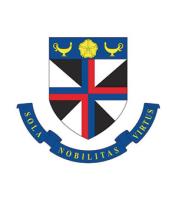| Language Policy |
All subjects apart from Chinese Language, Chinese History and Putonghua are conducted in English. |
| Learning and Teaching Strategies |
We have clear-cut objectives and policies for fashioning a curriculum in line with the school's vision and mission, and with the intellectual, spiritual, psychological, emotional and physical needs of our students. We provide our students with different learning experiences as an integral part of education for the whole person. Our curriculum is balanced, comprehensive and multi-faceted and caters for a broad range of abilities and needs. We have different timetables to accommodate our diverse, cross-curricular and extended learning activities, particularly those designed to promote civic and moral education. |
| School-based curriculum |
1. Electives: 2X and 3X. Economics, Geography, History, Chinese History, Literature in English, Biology, Chemistry, Physics, Information & Computer Technology, Business, Accounting & Financial Studies, Visual Arts & Music<br> 2. Curriculum highlights: We have Extended Learning Programme in S.1 & S.4 (2.0), STEM Education Programme in S.1 & S.2 and Project-Based Learning Programme in S.1. |
| Approach to Catering for Learner Diversity |
To help our students with character formation, we adopt a whole school approach involving religious and moral education, the homeroom period, guidance provided by a full-time social worker, in-house educational and clinical psychological services, the careers committee and the pastoral care core group (members include representatives from the Homeroom Teachers' Committee, Counselling Committee, Character Building Committee and the Prefect Board). |
| Approach to Integrated Education |
The Student Support Team in our school provides support to both gifted students, and students identified with special educational needs (SEN). It seeks to nurture everyone’s talents in different disciplines. This is achieved through collaboration with different parties, including teachers, parents, the Counselling Committee, school social workers, educational psychologists, clinical psychologists and speech therapists. Some other specific school-based measures in supporting everyone’s learning are: early identification of students with SEN, examination accommodation, assignment adjustment, and individual education plan. These are partly funded by the Learning Support Grant, and Diversity Learning Grant. In particular, each student identified with SEN is assigned to the SENCO, who meets regularly with both the learner and their parents to consider the effectiveness of teaching and learning. |
| Education Support for Non-Chinese Speaking (NCS) Students |
|
| Home-School Co-operation |
Our PTA aims to safeguard the school's mission and vision and our students' best interests through close cooperation and communication between the school management and parents. Thanks to the dedication of PTA officials past and present, the generous support and participation of parent volunteers and PTA members, the annual general meeting, the annual dinner and forums for parents have always gone well. |
| School Ethos |
We believe in education for the whole person with special emphasis on the cultivation of nobility of character. This is consistent with our motto: Sola Nobilitas Virtus. |
| School Development Plan |
Please refer to our school website http://www.mcs.edu.hk/ |
| Teacher Professional Training and Development |
Besides the annual staff development days, staff members attend courses and seminars organised by the EDB, the universities and other organisations. The School Social Workers, Education Psychologist and Speech Therapist will also organize workshops for teachers. |
| Life-wide Learning |
More than 40 extra-curricular activities groups have been set up and coordinated by the Student Association. These include academic, interests, performing arts, sports, religious and service groups. Inter-house activities are held with the cooperation of the 4 houses in school. It is believed that through participating and taking the leadership roles in extra-curricular activities, students' potential could be developed to the fullest. |
